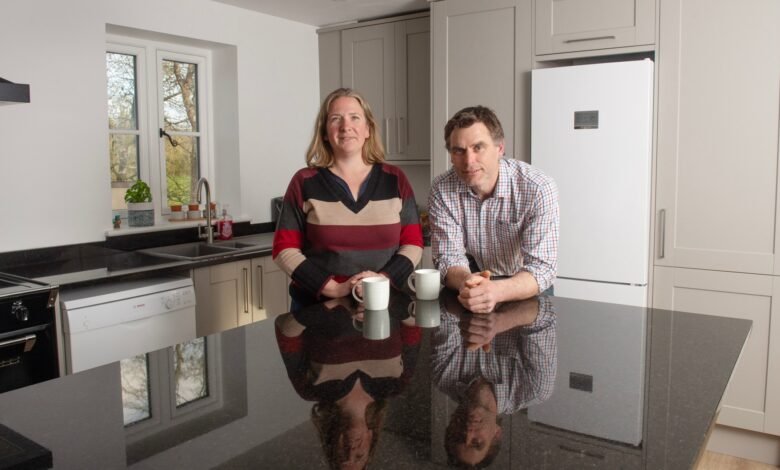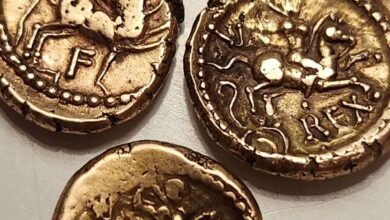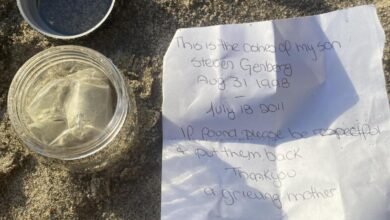While renovating my kitchen, I found an incredible treasure buried under my floorboards

A COUPLE have revealed how they made a whopping £60,000 after discovering hidden treasure under their floorboards.
Robert Fooks and his wife Betty struck gold while renovating the kitchen of their Dorset home and found a treasure trove of coins under the floor.
They have now auctioned the 1,000-piece rare find for £60,740.
The 17th century cash was in a broken bowl that agricultural engineer Robert found while carrying out work in his farmhouse.
A gold crown of Charles I from 1636 fetched the highest price of £5,000, while another collector paid £2,700 for a coin of James I from 1621.
Other currencies covered the reigns of Elizabeth I and Philip and Mary.
The 1,000 items fetched almost double the estimates from the Duke’s auction house.
The cash was also sent to the British Museum for identification and cleaning.
Robert and Betty found the coins after deciding to remove the concrete floor to increase the height of the kitchen.
Stunned Betty said: “It’s a 400-year-old house so there was a lot to do.”
“We took out all the floors and ceilings and put it back on the stone walls.
“We decided to lower the ground floor to achieve more ceiling height.”
Wielding a pickaxe by torchlight, Robert unearthed a treasure trove of 400-year-old coins buried about two feet underground.
The 1,029 coins included pristine examples of the gold coinage of King James I and King Charles I.
The 43-year-old added: “One evening I was with the kids and my husband was digging with a pickaxe when he called and said they had found something.”
“He put all the coins in a bucket and brought them to my house.”
The currency dates back to the English Civil War between 1642 and 1644.
The NHS health visitor said: “If we hadn’t lowered the floor they would still be hidden there.”
“It’s amazing and fascinating [to find the hoard].
“I assume they were buried during the English Civil War and the person intended to retrieve them but never had the opportunity.”
The coins went under the hammer at Duke’s Auctioneers in Dorchester.
The unusual find was reported to a local lost property office and they were taken to the British Museum for examination and cleaning.
Julian Smith, a specialist at Duke’s Auctioneers, described the Fooks’ cottage as a property steeped in history.
Coin specialist Julian Smith said: “The modern concrete floor was removed and the floor was lowered by almost 60cm to add height to the ground floor of the property.”
“In some areas there were old stone slabs under the concrete, but the area where the coins were found was bare earth.
“The coins were in the British Museum for identification and cleaning and it is believed that the coins were once deposited around 1642/44.”



